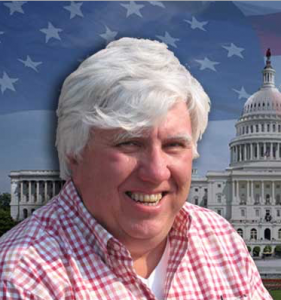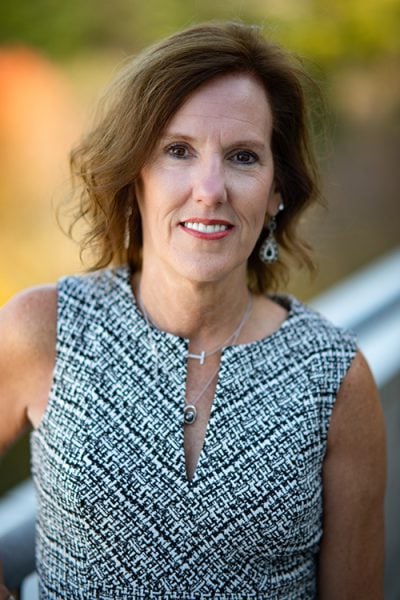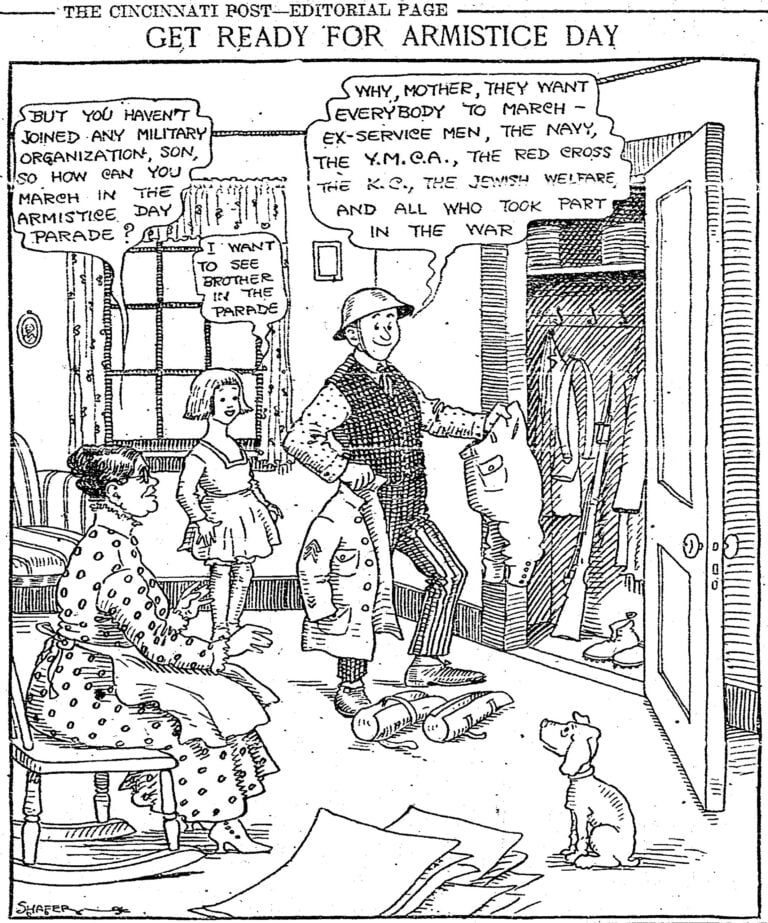Kim Davis, once again hiding behind the cloak of Jesus, is stepping up from the bush leagues of bigotry to the majors, seeking to unsettle the lives of hundreds of thousands of Americans, all because they’re in love and want to spend their lives together, for better or worse.
Davis, you’ll recall, was the duly-elected clerk of Rowan County who proved incapable of carrying out her sworn duties and blamed everyone except herself for her failure. On June 26, 2015, the Supreme Court, in a 5-4 decision, issued its ruling in Obergefell v. Hodges, providing same-sex couples with the right to marry, citing the due process and equal protection clauses of the U.S. Constitution. Soon thereafter, seeking to comply, Kentucky Gov. Steve Beshear, the current office holder’s old man, ordered the Commonwealth’s county clerks to issue marriage licenses to same-sex couples seeking same.
Old Kim wasn’t too enthusiastic about either the Supreme Court ruling or the governor’s order. She refused to issue licenses to gay folks, citing her devout Christian beliefs, a denial that came crashing down around her shoulders on July 27, 2015, when one couple, David Ermold and David Moore, taped her rejecting their application. The video went viral and the lawsuits — six of them — came cascading down.
“I can’t put my name on a license that doesn’t represent what God ordained marriage to be,’’ she told ABC-TV news on Sept. 22, 2015.
Possible repercussions from the deity didn’t stop U.S. District Judge David Bunning to tell Kim, in a nice way, of course, to knock it off and do her job, a decision quickly endorsed by a three-judge panel of the U.S. Sixth Circuit Court of Appeals in Cincinnati, and ultimately, by the Supreme Court, which refused to consider the matter.

To make a long story short, as the old saying goes, Davis still refused to comply, asserting she was “acting under God’s authority,’’ despite no evidence that the divine one held a law license. Bunning stuck her in the can and, eventually, she decided to permit the clerk staff to issue valid licenses without her signature.
Calm finally settled over Morehead. So now, of course, Kim Davis is stirring the pot again.
This week, Davis, with the support of the Florida-based Liberty Council, led by Mat Staver, a University of Kentucky College of Law grad and erstwhile pastor at a handful of Commonwealth churches, asked the Supreme Court to reverse its ruling in Obergefell, which, if the justices go along, would seemingly nullify the previously legitimate marriage licenses held by same-sex couples.
And you know what? Don’t bet against it.
Davis included that request in a petition for writ of certiorari to the high court seeking, on First Amendment grounds, to overturn civil judgments issued against her for nixing same-sex marriage licenses, resulting in an assessment of damages totaling in the neighborhood of $360,000. The petition, signed by Staver, maintains Obergefell is “egregiously wrong’’ and that the “mistake must be corrected.’’
“If there ever was a case of exceptional importance,” Staver wrote, “the first individual in the Republic’s history who was jailed for following her religious convictions regarding the historic definition of marriage, this should be it.”
While the attack on same-sex marriage is bigoted and far-fetched, it doesn’t mean the Supreme Court, in its current unctuous formulation, won’t go along with the gag. This is the same nonet, after all, that is permitting President-cum-Dictator Donald J. Trump to use the U.S. Constitution to blow his nose. And worse.
But there are even more significant indicators. The court, with three justices appointed by Trump, have displayed little regard for precedent, quickly dismissing stare decisis as some Latin mumbo-jumbo they probably used to chant at a Catholic mass. The court, under utterly failed Chief Justice John Roberts, often acts like rulings from previous courts are a mirage and react by substituting them with their own maladroit decisions. That predilection comes through most obvious in the infamous Dobbs case that overturned Roe v. Wade, that determined women have, now had, a right to abortion. They did it again recently in finding that Trump has the right to fire individuals on certain federal government panels, like the National Labor Relations Board, a power previously denied the president since members are appointed to fixed terms and confirmed by the Senate.
But there’s more. The Obergefell ruling was close, 5-4. Two justices who were in the majority, Justice Anthony Kennedy, who authored the decision, and the late Justice Ruth Bader Ginsberg, are no longer on the court. They were replaced by Justice Brett Kavanaugh and Justice Amy Coney Barrett.
Barrett conceivably could prove to be the vote that kills the constitutional right.
It takes four justices to grant a writ of certiorari, a motion asking the court to consider the case. Those two old frauds, Justice Samuel Alito and Justice Clarence Thomas, have already indicated they want to reconsider the decision. Roberts who joined them in dissent, wrote that the issue should rest “with the people acting through their elected representatives, not with “five lawyers who happen to hold commissions authorizing them to resolve legal disputes according to law.”
Barrett, in 2016, before she was elevated to the court, essentially embraced Robert’s view. In November 2016, she cited his dissent, noting that “those who want same-sex marriage, you have every right to lobby in state legislatures to make that happen, but the dissent’s view was that it wasn’t for the court to decide. So I think Obergefell, and what we’re talking about for the future of the court, it’s really a who decides question.”
Barrett, along with Roberts could, therefore, provide the four votes needed for the high court to reconsider the case. Obergefell’s fate could ultimately rest with Kavanaugh or Justice Neil Gorsuch, both of whom were nominated by Trump, were not on the court at the time and are not particularly open-minded. The court will decide whether to place the case on the docket in late September for the session that begins the first Monday in October.
By the way, Trump thus far has kept his nose out of the situation. He has been all over the map in the past, Years ago he expressed support for domestic partnerships but told Fox News in 2011 that he was not in favor of “gay marriage.’’ Then, in 2016, in an interview with 60 Minutes, he was “fine’’ with same-sex marriage.
You figure him out.
As of 2023, there were almost 775,000 households with same-sex married couples. They are provided some protections under the Defense of Marriage Act, passed in 2022, that requires the federal government and every state to recognize the validity of same-sex and interracial civil marriages performed elsewhere. But without Obergefell the individual states might prohibit such nuptials. Thousands of lives would unnecessarily be turned upside down.
Religion is a great and saving grace for many, if not most, people. But ask a hundred people on the street for their religious views you would get a hundred different answers. There are Christians, the dominant force in the U.S., Jews Muslims, Hindus, Buddhists, you name it. And there are differences within those sects. Kim Davis may hear God telling her same-sex marriage is an abomination. Folks I know in such arrangements can say God informed them otherwise.
Everyone should be equally accommodated. That’s why there’s a Constitution and laws for everyone of legitimate but differing views to abide by. Davis said no. But the laws everyone is obliged to follow said yes.
The late U.S. District Judge John Heyburn, of Louisville, presided over a case that predated Obergefell that challenged Kentucky’s same-sex marriage prohibition. He ruled that the Commonwealth is required under the Constitution to permit same-sex marriages and recognize such arrangements performed in other states. Banning the practice, he wrote, has “no conceivable legitimate purpose” and that it only serves to prohibit certain individuals from the “intangible and emotional benefits of civil marriage,”
“In America, even sincere and long-held religious beliefs do not trump the constitutional rights of those who happen to have been out-voted,” Heyburn wrote.





















